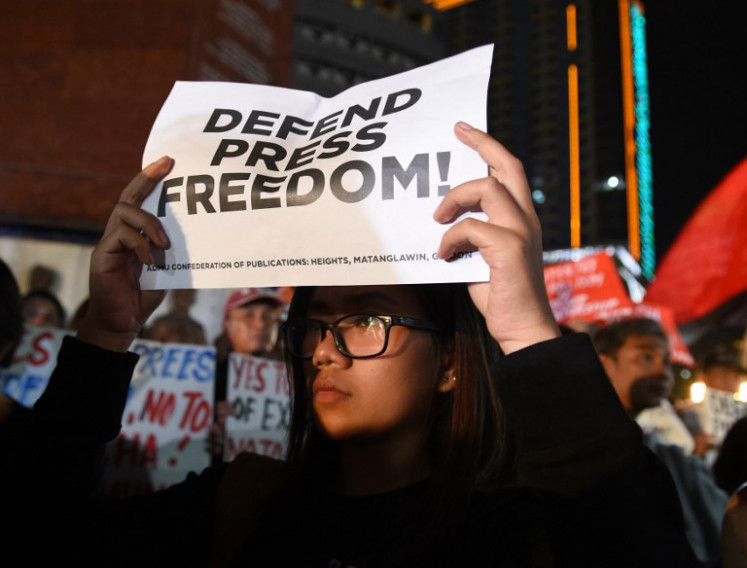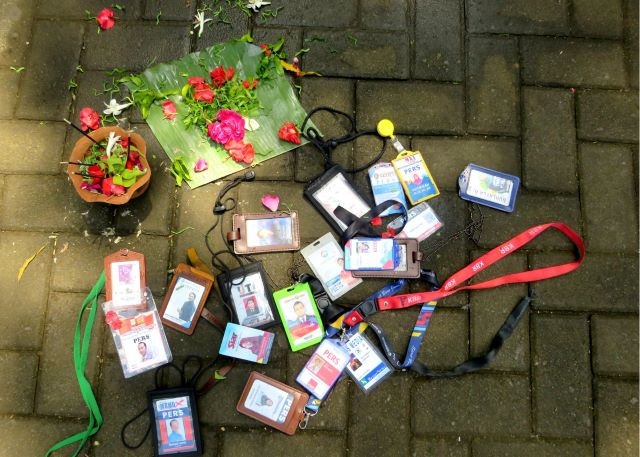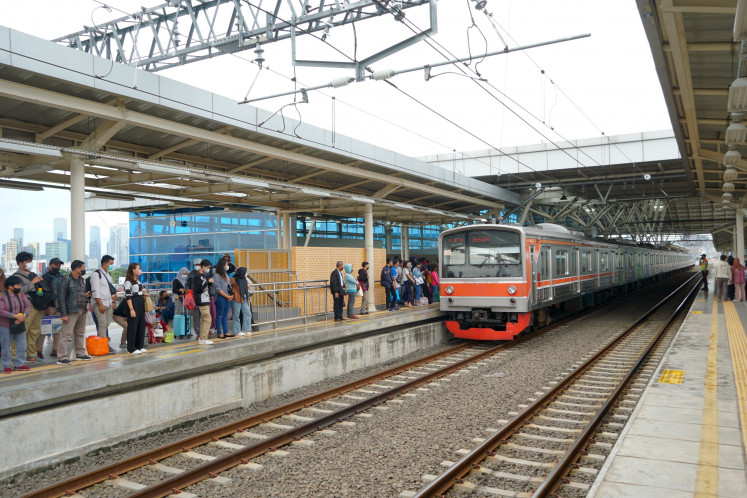Indonesian-Malaysian pair breaks through Southeast Asian lending
Less than a year ago, two Harvard MBA students started a business project in the online lending marketplace
Change Size

L
ess than a year ago, two Harvard MBA students started a business project in the online lending marketplace.
The initial thought was to connect lenders and borrowers, as many small and medium-sized enterprises (SMEs) are not bankable and they wanted to tap into the huge financing gap.
Now the project is on stream in Singapore and Indonesia, and Reynold Wijaya, 27, an Indonesian national, and Malaysian Kelvin Teo, 29, have raised more than US$6 million in loans for SMEs in the two neighboring countries.
“It’s a business, but we want to create an impact,” Reynold, co-founder of Indonesia’s Modalku and Singapore’s Funding Societies, told The Jakarta Post in his first media interview after graduating from the prestigious Harvard Business School.
Modalku and Funding Societies facilitate lending by pooling funds from lenders online and disbursing them to borrowers, known as peer-to-peer lending (P2PL). P2PL has gained momentum throughout the world with the rise of financial technology (fintech).
Modalku partners with Bank Sinarmas and Funding Societies with DBS in escrow accounts that enable the fund to be pooled there instead of being held by lending marketplaces. They started out with US$1.6 million in seed capital, primarily from Indonesia-focused venture capital firm Alpha JWC.
The global marketplace lending industry has grown by 51 percent on average every year and is predicted to reach $290 billion in 2020, according to Morgan Stanley research. China contributes the most to it but the US and the UK’s P2PL systems are also considered mature.
Borrowers are drawn in by the speed and ease of applying as well as by competitive interest rates, said Mandiri Institute researcher Bobby Hermanus. For lenders, P2PL platforms serve as an investment alternative amid difficulties generating profits in a weak global economy.
But there are risks and Fintech and P2PL have yet to be regulated in Indonesia.
“Rules and protections for both borrowers and investors from related risks or fraud, either intentionally or through mere negligence, are not available,” Bobby wrote in a research report.
So far, Modalku and Funding Societies have recorded zero percent default rates, with stringent underwriting procedures for borrowers, both administrative and physical checks, which include business site visits, and a family background check.
“Things like how many children they have. What kind of transportation they use to commute,” said Reynold, whose fascination with SMEs grew from his family’s business, the 35-year-old food and beverage company United Family Food.
For lenders, they scrutinize banking transaction details and study their documents. Everything is done online.
Modalku offers three to 12-month loans with a 15 to 20 percent interest rate per year, compared with 18 to 22 percent at traditional banks and more than 30 percent with loan sharks. Funding Societies loans are three to 24-months with a 9 to 14 percent interest rate per year.
Modalku takes around 3 percent out of the interest rate charges only when repayment is conducted every month.
Modalku offers no more than Rp 500 million per loan in the Greater Jakarta area. This year, it aims to expand its outreach to more areas in the archipelago. Their target is the “small” maturing SME, and entrepreneurs that are under-served by banks.
“We are not competing with banks,” Reynold said, pointing out that partnership with banks will be key to his company’s business growth. “Banks can never offer what we offer. They like long-term loans and it’s very hard for them to fragment money in the short-term.”
The SMEs under Funding Societies’ coverage include those in the sectors of: construction, engineering, wholesale trade, manufacturing, food and beverages, services, retail, transportation and logistics, training and education.
Former Indonesian finance minister Muhammad Chatib Basri, who is among the advisers for Modalku and Funding Societies, called the peer-to-peer lending projects an “extraordinary idea” that will change the way lending is disbursed for unbankable SMEs and realize every country’s dream of financial inclusion.
“This sharing economy-slash-digital economy is addressing asymmetric information issue that has disabled market formation. This is going to change the market,” said Chatib, advising the Indonesian-Malaysian pair to prioritize consumer protection and prudence.
Rapid developments in the fintech sphere have captured the attention of the Financial Services Authority (OJK), which is drafting a regulation on fintech to be issued this year.
“We need to take advantage of this chance to support financial inclusion, especially for SMEs,” OJK chairman Muliaman Hadad said.
---------------
To receive comprehensive and earlier access to The Jakarta Post print edition, please subscribe to our epaper through iOS' iTunes, Android's Google Play, Blackberry World or Microsoft's Windows Store. Subscription includes free daily editions of The Nation, The Star Malaysia, the Philippine Daily Inquirer and Asia News.
For print subscription, please contact our call center at (+6221) 5360014 or subscription@thejakartapost.com









